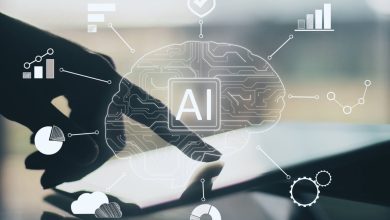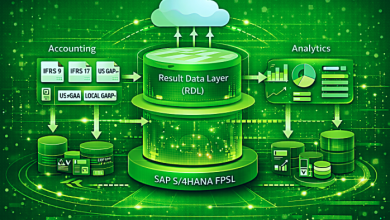
There’s no denying AI is playing a bigger role in how the financial world works. It’s not just banks using it behind the scenes anymore. It’s showing up in personal finance apps, crypto tools, lending platforms, and even the way insurance claims are handled. The idea isn’t to take over, it’s to make things smoother and quicker for both companies and everyday users.
Crypto is already being shaped by AI
One of the places where AI is starting to show its influence early is in the crypto space. Some of the top crypto ICOs have gone beyond basic use cases like sending and receiving tokens. Now, platforms are building tools powered by AI that help users manage their assets better. From staking strategies and real-time trade suggestions to wallet dashboards that adjust based on what’s happening in the market, it’s becoming more common to see AI play an active role.
It’s not just about making decisions faster. It’s about helping people who don’t have time to watch every price swing or read every chart. Some crypto wallets now suggest when to move tokens or shift strategies, while others use AI to flag possible scams or risky behaviour. The result is that users aren’t just holding coins anymore. They’re being given ways to actually make smarter use of what they own.
Money tools are starting to think for you
Apps that help you manage your money used to work like digital notebooks. They kept track of your spending and maybe offered a few pie charts to show you where it all went. That’s changed. Now, many of those apps run in the background and do more than just track. They predict. If it notices a spike in your grocery spending or that your utility bills keep climbing, it doesn’t just show you, it tells you.
Some tools even make small adjustments on their own, like moving a few dollars into savings if they notice you’ve spent less than usual. That kind of support used to only come from having an accountant or advisor, but AI has made it easier to build into tools anyone can download.
Loan approvals are quicker and more flexible
Getting approved for credit or a loan used to depend almost entirely on your credit score. If you didn’t have one or it wasn’t strong, that was the end of the conversation. Now, AI looks at more than just a number. Things like your bank account history, how you handle bills, and how your income moves month to month are being added to the decision-making process.
This is especially useful for freelancers, business owners, or anyone whose income doesn’t come in neat, regular chunks. AI helps lenders understand the full picture and make faster decisions, sometimes in just a few minutes.
Investing is becoming more personalized
Years ago, if you didn’t know how to build a portfolio, your options were limited. Now, there are tools that ask a few basic questions and build one for you, not just once, but constantly updating based on what’s happening. These platforms learn how you react to changes as well. If you get nervous and sell quickly when prices drop, they take that into account and shift things to help keep your emotions in check.
This isn’t just about stocks. AI is now being used to help people build crypto portfolios, invest in green assets, or follow specific market sectors. That kind of flexibility wasn’t really available to regular investors even five years ago.
Insurance is speeding up where it matters
Insurance paperwork has a reputation for being slow and complicated. Some companies are starting to fix that with AI. You can now submit photos after a minor car accident and get an estimate, and sometimes a payout, within a few hours. For health coverage, certain apps can flag when you’re missing out on benefits or remind you to book a check-up based on your past records.
It’s also helping companies catch issues early. By looking at patterns, some systems can spot when someone might be at risk of a health problem and suggest action before it becomes serious. That’s better for the customer, and it helps insurers avoid big claims later on.
Fewer mistakes, faster fraud detection
One of the main things AI does well is spot patterns. That’s a big deal when it comes to fraud. Old systems worked off basic rules: if something looked suspicious, it was flagged. The problem was that a lot of those flags were just people travelling or spending more than usual. Now, AI learns what’s normal for you and only acts when something really looks off.
This kind of detection isn’t just for credit cards. It’s being used in banking apps, trading platforms, and crypto exchanges to catch unusual logins, strange withdrawals, or behaviours that don’t match your usual habits. That keeps your money safer without making it harder to access.
Support is more useful, even when it’s automated
Customer service used to mean waiting on hold or emailing back and forth. That’s changing too. AI-powered chat tools can now look up your account, walk you through a fix, or even explain why a transaction didn’t go through. The difference is that these bots don’t sound like robots anymore. They’re connected to your data and trained to solve problems fast.
Some banks now let you ask simple questions by voice. You can check your balance, freeze a card, or ask how much you spent on takeout last month, all without tapping through menus. It’s a small thing, but it saves time and makes everything a little easier.
Conclusion
AI isn’t taking over your finances. It’s helping you manage them better. From crypto tools and budgeting apps to loans and insurance, these systems are learning how to make money management faster, safer, and more personalized. You still make the final call, but now you’ve got something in your corner that helps you make smarter ones.





